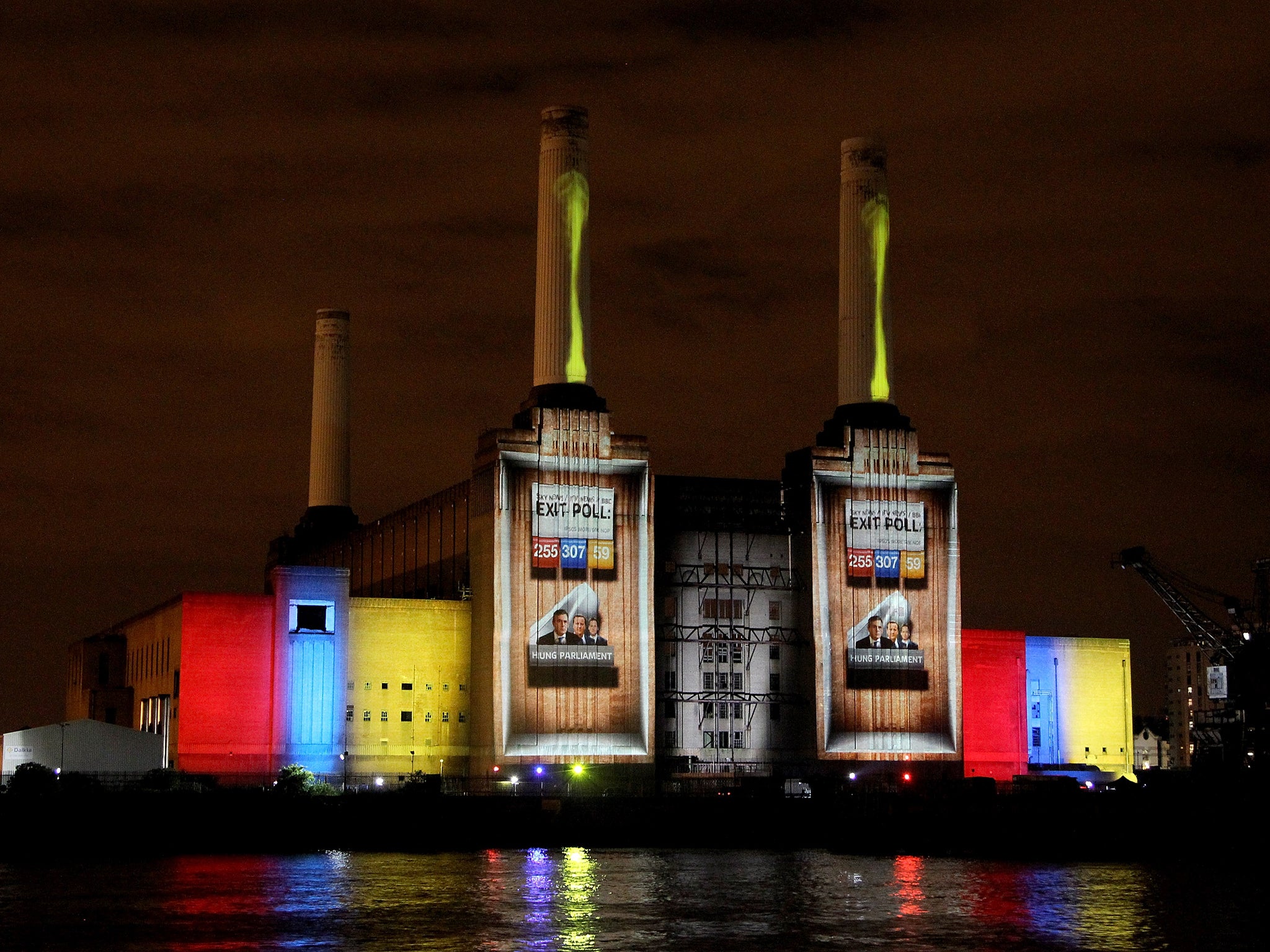General Election 2015 explained: What happens if there is a hung parliament?
Continuing our miscellany celebrating the facts, figures and folklore of British general elections

The Numbers
The House of Commons has 650 MPs, so a party has to win a minimum of 325 seats in order to win a majority. If none does so, Parliament is considered “hung”.
Frequency
Modern British politics has been so dominated by two-party politiCS that inconclusive results such as that of 2010 seem like aberrations. Yet hung parliaments do happen: in 1974, for example, and, before that, in 1929.
If the UK changed to a system of proportional representation, such outcomes would become the norm. Even now, the rise in support for smaller parties suggests that they are becoming more common. Opinion polls predict overwhelmingly that the next Parliament will be “hung”.
Are you undecided about who to vote for on 7 May? Are you confused about what the parties stand for and what they are offering? Take this interactive quiz to help you decide who to vote for...
Incumbency
When the Opposition party decisively wins an election, as in 1997 and 1979, the rules are brutal: the defeated Prime Minister and his family have to move out immediately. When Parliament is hung, the Prime Minister remains in occupancy unless and until the former Leader of the Opposition is in a position to form a government.
In 2010, Gordon Brown was unfairly attacked for returning to Downing Street after Labour’s defeat. In fact, he was following the correct procedure. Unless Labour wins 325 seats, David Cameron will still be Prime MinistER on 8 May.
The Rules
There is only one clear rule for forming a government in the hung Parliament, and even that is a loose one: the politician who can tell the Queen that he has a workable majority in the House of Commons is the one the Queen will authorise to form a government.
In 1974, Sir Robert Armstrong, the Prime Minister’s Principal Private Secretary, wrote a series of memos on the constitutional position under a hung Parliament. These are still used as guidelines. The “default position”, according to Armstrong, is that the leader of the party with the largest number of MPs should be “invited to become the new Prime Minister, either strengthening his or her position by forming a coalition with one or more of the smaller parties or taking office as the leader of a minority government”.
Votes vs Seats
The party with the most MPs may not be the party that wins the most votes. In February 1974, the Conservatives won the popular vote, but had 297 MPs to Labour’s 301.
The Conservative Prime Minister Edward Heath stayed in Downing Street, offering to form a coalition with the Liberals, but Liberal party activists would not sanction it. Harold Wilson formed a minority Labour government instead.
In pictures: Experts' predictions for the General Election - 19/04/15
Show all 10Coalitions
Coalition governments are rare in peacetime. There was one during the Second World War and there were “National Governments” for much of the 1930s – led first by Ramsay MacDonald, leader of the breakaway National Labour party, and later by the Conservatives Stanley Baldwin and Neville Chamberlain.
In 2015, a new coalition looks unlikely. Ed Miliband has ruled out coalition with the SNP, while the Conservatives are unlikely to have the stomach for another coalition, either with the Lib Dems or with UKIP.
Minority Government
Minority government occurs when a political party that is short of an outright majority governs on its own, filling all the ministerial positions.
There were minority Labour governments from 1929 to 1931, from February to October 1974, and from 1977 to 1979. There was a minority Conservative government from December 1996 to May 1997.
Confidence and Supply
A minority government can survive via a deal by which a third party (or several) undertakes not to vote against a budget (supply) or to vote against the government in a vote of no confidence (confidence). Other measures brought forward by such a government may not get through.
No Confidence
An Opposition can bring down a government by tabling a vote of “no confidence”. Precedent sets down that the government must allot a day for the motion to be debated and voted on. If the government loses, it resigns.
This last happened when the SNP tabled a motion of “no confidence” in the Labour government in 1979.
Early Elections
In the past, hung parliaments have often ended with an early election, either because the government had been brought down, as in 1979, or because the Prime Minister calculated that his party could win a majority, as in October 1974.
However, the Fixed Term Parliament Act of 2011 means there cannot be another general election until May 2020 unless two thirds of MPs agree; or the government is brought down by a vote of no confidence and no new government can be formed; or if the new Parliament scraps the Act. So the next Parliament is likely to last a full five years.
Public Opinion
According to the Hansard Society, 32 per cent of the public think there should be an early second election if Parliament is hung; 27 per cent favour a coalition; and 23 per cent prefer minority government.
Tomorrow: No.9 Impropriety
The Independent has got together with May2015.com to produce a poll of polls that produces the most up-to-date data in as close to real time as is possible.
Click the buttons below to explore how the main parties' fortunes have changed:
All data, polls and graphics are courtesy of May2015.com. Click through for daily analysis, in-depth features and all the data you need. (All historical data used is provided by UK Polling Report)
Subscribe to Independent Premium to bookmark this article
Want to bookmark your favourite articles and stories to read or reference later? Start your Independent Premium subscription today.

Join our commenting forum
Join thought-provoking conversations, follow other Independent readers and see their replies